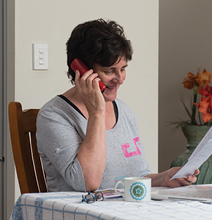On 8 February, AGE responded to the Commission’s public consultation on the promotion and validation of non-formal and informal learning. The role of non-formal and informal learning in helping to ensure that citizens acquire the competences they need to engage in further learning and in the labour market was emphasised in the New Skills for New Jobs Flagship Initiative. This consultation collected stakeholders views on whether further action is needed to make the learning acquired through work and life experience visible and to give it value, what type of action could be required and which policy priorities should be given attention to ensure future measures are relevant, well-focused and respond to citizen’s actual needs.
AGE’s response
Lifelong learning is of key importance for individuals of all ages and holds an array of benefits for them and society. It is also fundamental for social inclusion, employability, active citizenship and personal fulfillment. AGE considers that non-formal and informal learning is also integral to active ageing and should be acknowledged and celebrated as part of the 2012 European Year on Active Ageing. This European Year will provide a timely opportunity to launch initiatives that encourage a greater acknowledgement of experience gained through less formalised ways of learning.
AGE recommended that the experiences of older learners who participate in non-formal and informal learning should be collated in a dedicated section on the Commission’s EY2012 website that will be launched on 29 April 2011. This will inspire others to launch programmes in support of older learners and encourage benchmarking between different countries.
AGE holds that information, guidance and counselling services on non-formal and informal learning should be provided to help older people better understand the skills they have gained through their life experiences and how these skills can be used in other areas of their lives, including volunteering activities and paid employment. However, more research is also needed on the types and amounts of non-formal and informal lifelong learning in which older people participate and the specific issues they face in accessing these opportunities. Specific attention needs to be paid to the gender dimension and the needs of older people living in rural or remote areas
The consultation responses will be published on the Commission’s website. The Commission will use these to determine its future action in promoting and validating non-formal and informal learning.
Please click here to read AGE’s response.
For more details about AGE’s work on life-long learning, please contact Rachel Buchanan, Policy Officer for Employment and Non-Discrimination at rachel.buchanan@age-platform.eu.






